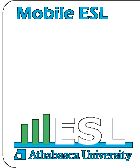Unit 50: PERSONAL PRONOUNS
We can use a personal pronoun instead of a noun phrase (Unit 45) when we can already understand who or what.
Form
[S]:SUBJECT,[O]:OBJECT,[G]:GENITIVE,[R]:REFLEXIVE
[S] I [O] me [G] my [G] mine [R] myself
[S] You [O] you [G] your [G] yours [R] yourself
[S] He [O] him [G] his [G] his [R] himself
[S] She [O] her [G] hers [G] hers [R] herself
[S] It [O] it [G] its [R] itself
[S] We [O] us [G] our [G] ours [R] ourselves
[S] You [O] you [G] your [G] yours [R] yourselves
[S] They [O] them [G] their [G] theirs [R] themselves
Subject pronouns
When the pronoun is the subject of the sentence (Unit 1) or the subject of a clause.Maria read for a few minutes. Then she went to sleep.
John said that he had to go.
Maria had done the test before so it was easy for her.
These houses are very old. They were built 200 years ago.
Reflexive pronouns
WHEN THE NOUN AFTER THE VERB IS THE SAME AS THE SUBJECT
Maria looked at herself in the mirror. = Maria looked at Maria.
John has hurt himself. = John hurt John.
Enjoy yourselves on holiday! (The subject is you.)
TO POINT STRONGLY TO THE SUBJECT.
I made it myself. (Nobody made it for me.)
NOTICE: He lives by himself. = He lives alone.
Genitive pronouns
When we are talking about who things belong to.WITH A NOUN
I've lost my book.
Is that your car?
John has changed his mind.
John and Maria are visiting their uncle.
WITHOUT A NOUN
This is Maria's book. Where's mine?
Maria is talking to an old friend of hers.
That's my car. Yours is over there.
NOTICE: She's cut her finger. NOT she's cut the finger
Object pronouns
When we cannot use any of the other pronouns.Maria had to go because John was waiting for her.
Maria had done the test before so she found it easy.
The students sat with the exam paper in front of them.
Could you help us please?
Who's that? It's me.
Special uses of pronouns
it
FOR THE WEATHER
It's very hot.
It was raining.
It's half past two.
It was very early.
It's two kilometres to the centre.
FOR IDENTIFYING PEOPLEWho's that at the door? It's me.
you
FOR ANYONE OR EVERYONE (USUALLY IN SPEAKING)The buses here are so full that you often have to stand.
You mustn't smoke in a non-smoking area.
they
FOR A GROUP OF PEOPLE WHO YOU DO NOT KNOW PERSONALLYThey say it's going to be a good summer.
They're putting up the price of gasoline.
If anyone has finished, they can go.
Someone hasn't eaten their food.









